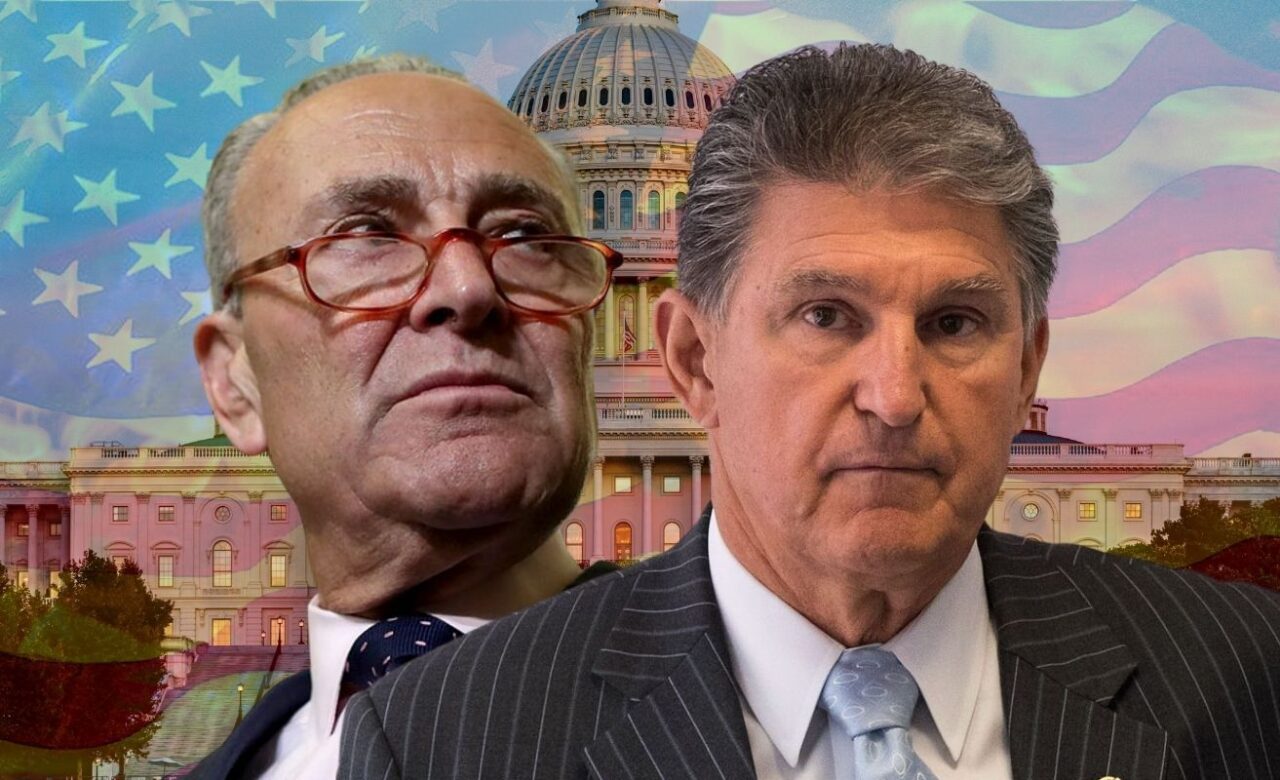If Biden’s Inflation Reduction Act passes the House experts say it would increase inflation, not reduce inflation.
Inflation Reduction Act
Kamala Harris was the tie breaker in this weekend’s 51-50 Senate vote to pass the Inflation Reduction Act, a $739,000,000,000 (billion) package aimed to address energy, taxes and health care, according to Democrat leaders.
Senate majority leader Chuck Schumer (D-NY) and Senator Joe Manchin (D-WV) were the political leaders pushing the new bill.
The bill, a slimmed-down version of the “Build Back Better” bill (a $4 trillion proposal), is a culmination of more than a year of intra-party negotiations among Democrats who used a process called “budget reconciliation,” allowing them to get around the Senate filibuster.
Details Of The Bill
You can read the 755-page Inflation Reduction Act bill here or the summary here.
According to reports, the pending bill will raise more than $700 billion in tax revenue, and spends over $400 billion, which includes extending the Affordable Care Act subsidies, provisions on fossil fuel energy, a 15% minimum corporate tax rate, and more.
Key elements of the bill include $80 billion to enforce taxpayer ‘services’ and double the amount of IRS agents to approximately 87,000. The IRS says the money is expected to go toward efforts to answer all incoming calls rather than just 15%, will crack down on ‘wealthy tax evaders’ and will modernize its technology. They expect the bill would raise more than $400 billion over the next decade.
The New York Times stated the IRS would not increase audits of those making less than $400,000 a year.
The bill claims to help fight against the Democrats’ climate change by investing nearly $375 billion over the next decade, which includes investments in renewable energy production and tax rebates for consumers to buy electric vehicles.
Additional details:
- Cap prescription drug costs at $2,000 out of pocket for seniors.
- Allow Medicare to negotiate prescription drug prices with drug companies.
- Assist Americans in paying for private health insurance.
- Provide free vaccines to seniors, cap insulin prices at $35 a dose, and extend COVID-19 subsidies for health insurance for three more years.
- Provide tax credits to nuclear power and carbon capture technology companies.
- Implement fees for excess methane emissions from oil and gas drilling.
- Give fossil fuel companies full access to leasing federal lands and waters.
- Impose a 1% tax on stock buybacks.
- $300 billion to go toward paying down the country’s deficits.
The Congressional Budget Office says the Inflation Reduction Act bill would generate an additional $203.7 billion in revenue for the federal government, for a net gain of more than $124 billion.
Vice President Kamala Harris said the bill will “lower costs” for basic needs that families have had for generations.
Experts Push Back: Taxes Will Increase
More than 203 economic experts signed a letter stating concerns about the proposed bill. Below is an excerpt from the letter, addressed to House and Senate Leaders:
“At a time when the economy already faces supply/demand imbalances, the residual effects of stimulus, labor shortages, and supply chain disruptions, this bill would compound rather than alleviate many of these problems.
In particular, it’s $433 billion in proposed government spending would create immediate inflation pressures by boosting demand, which the supply-side tax hikes would constrain supply by discouraging investment draining the private sector of much-need resources.”
More pushback came from Rep. Jim Banks (R-IN), who listed the 50 most radical policies found inside the 755-page Democrat-led Inflation Reduction Act.
Here are five examples Banks pointed out Americans’ should be concerned about if the bill passes:
- The bill’s giveaway to green energy would increase American reliance on China for rare earth minerals.
- The legislation increases taxes just as the country is entering a recession.
- The legislation would add $80 billion in funds to supersize the IRS’s ability to audit Americans. This would especially harm middle-class Americans.
- The Inflation Reduction Act contains a “socialist price control regime” to aim to lower drug prices.
- Create an “environmental justice solar and wind capacity limitation program” to further the Democrats’ “radical ‘environmental justice’ agenda.”
Socialist Bernie Sanders (D-VT), who voted for the bill, went on record that the billion-dollar bill would likely not reduce inflation.
What’s Next?
The House of Representatives is set to return to Washington, D.C., this Friday to pass the bill, sending it to President Biden’s desk.
Get the news you need at It’s On News.


